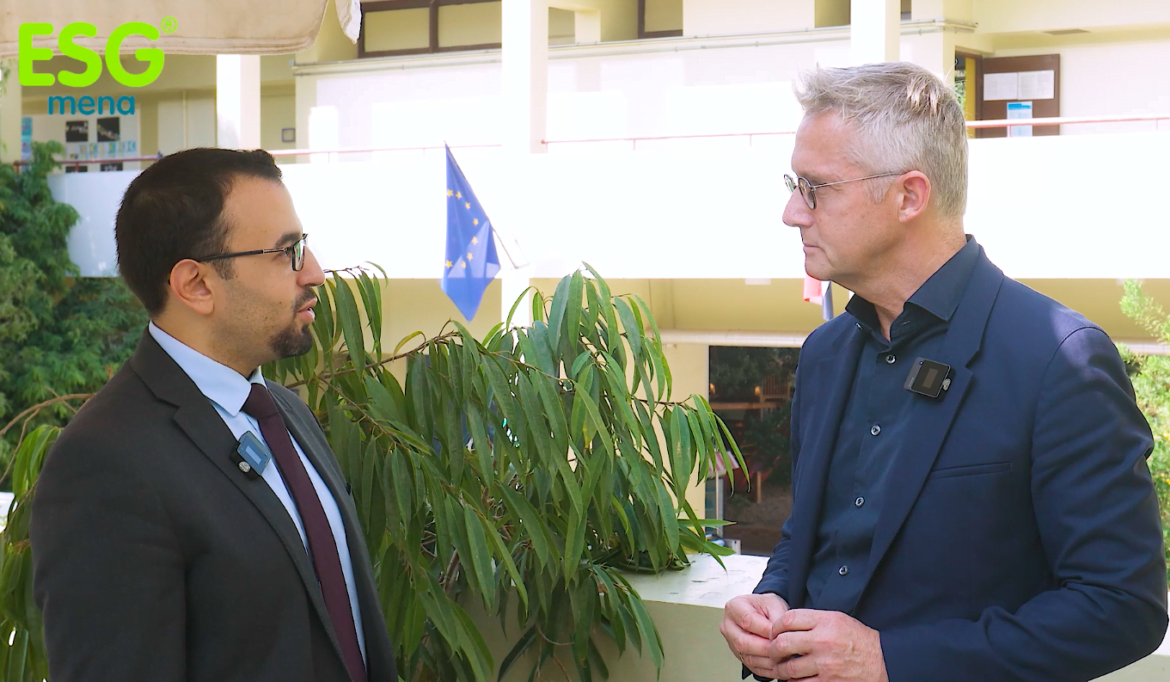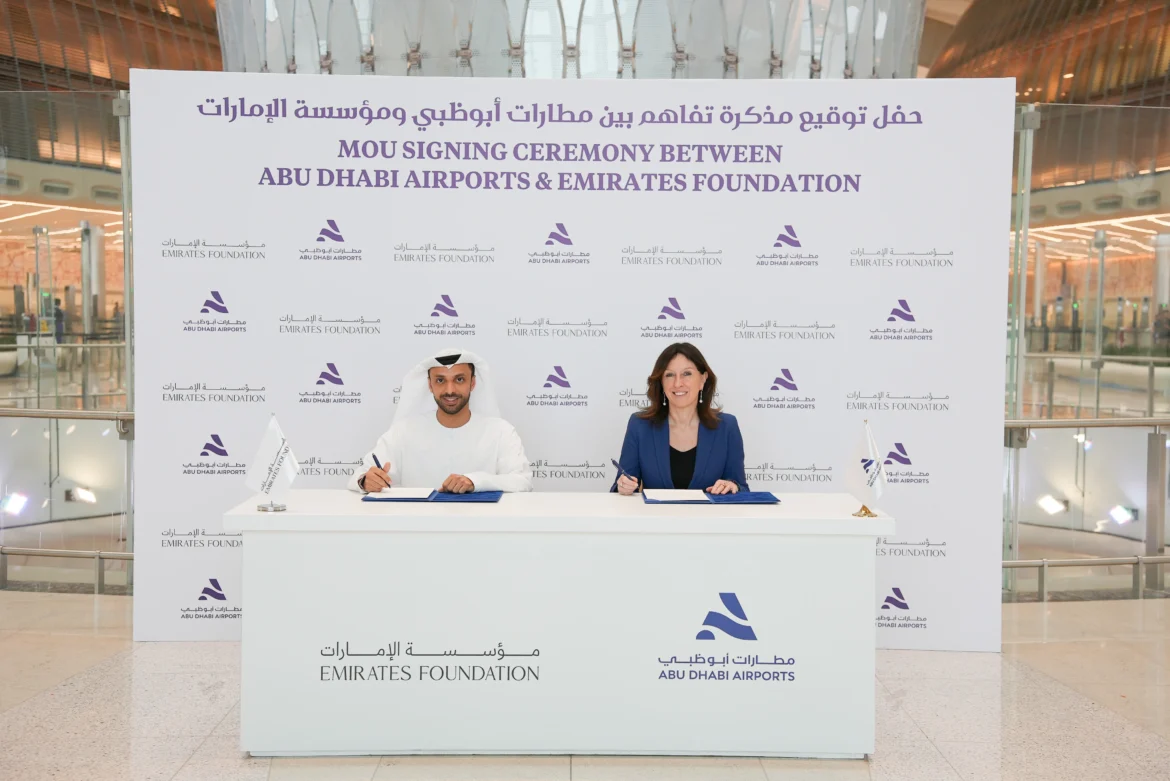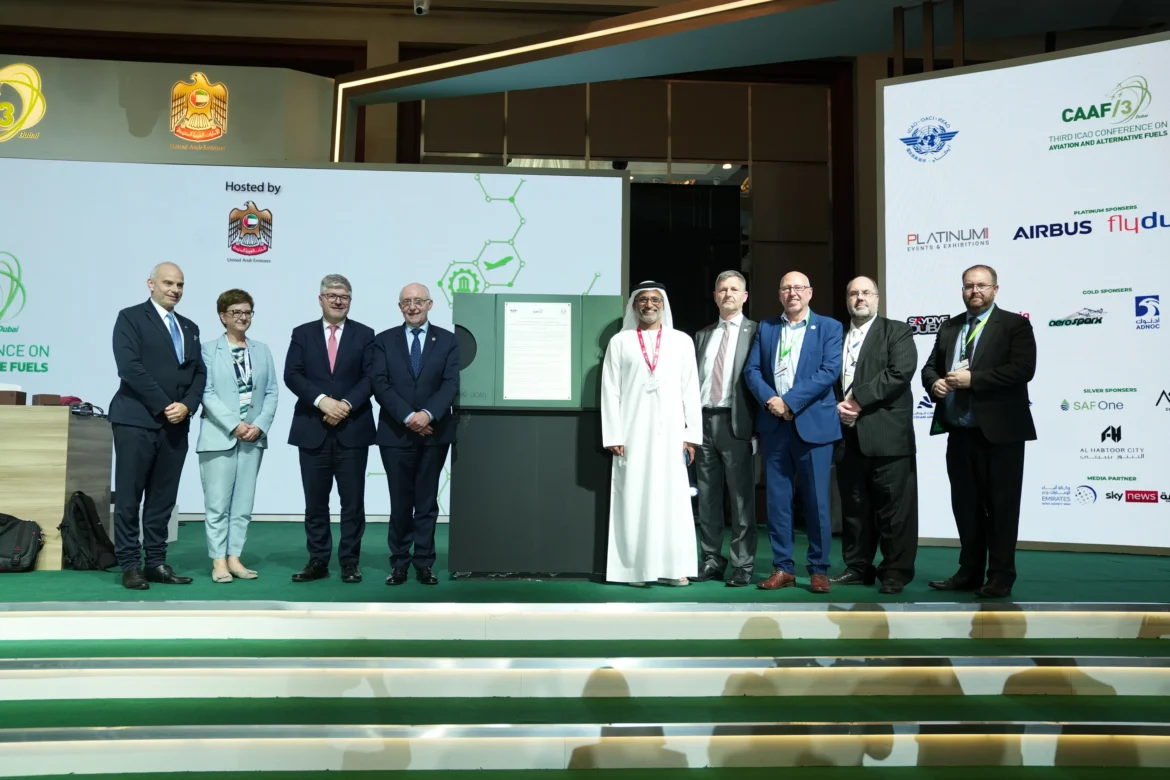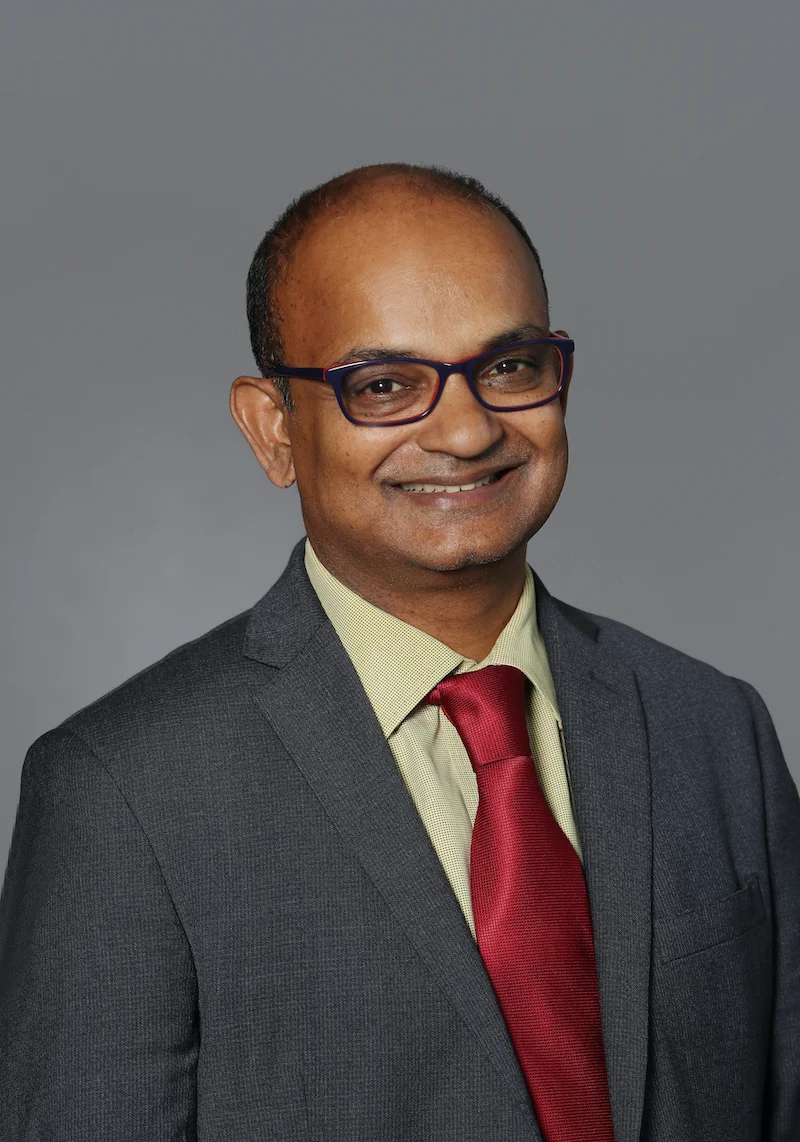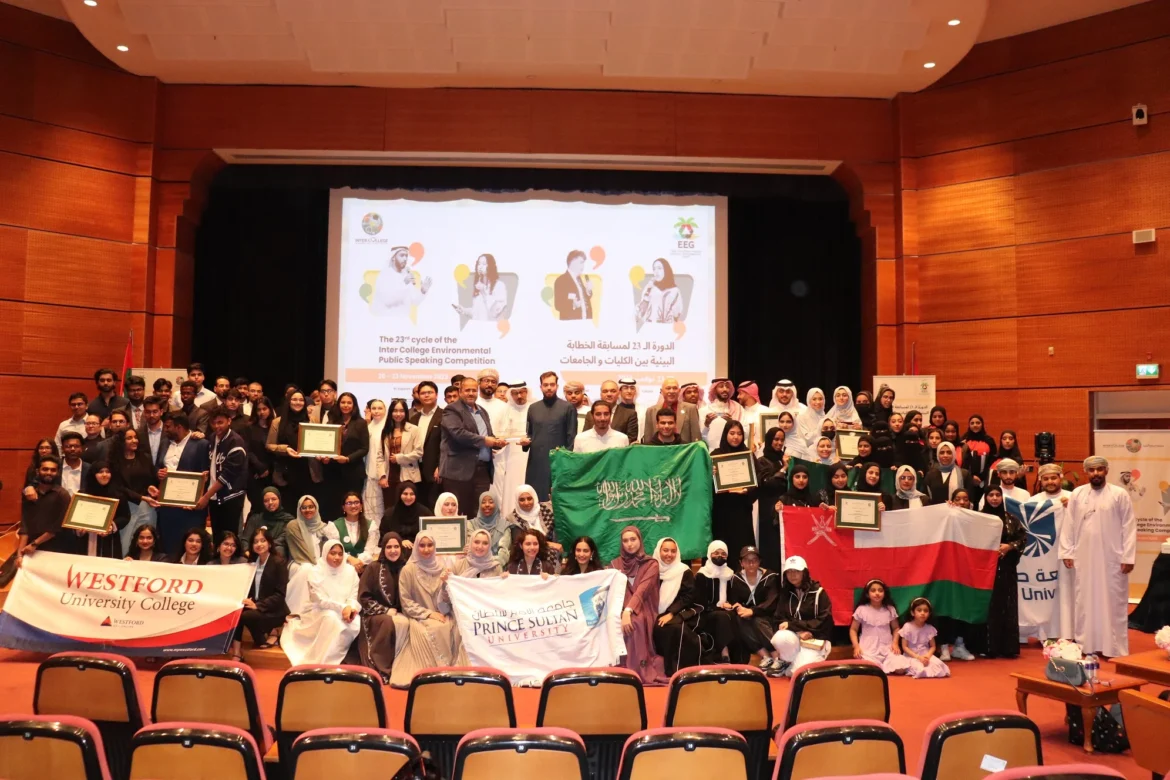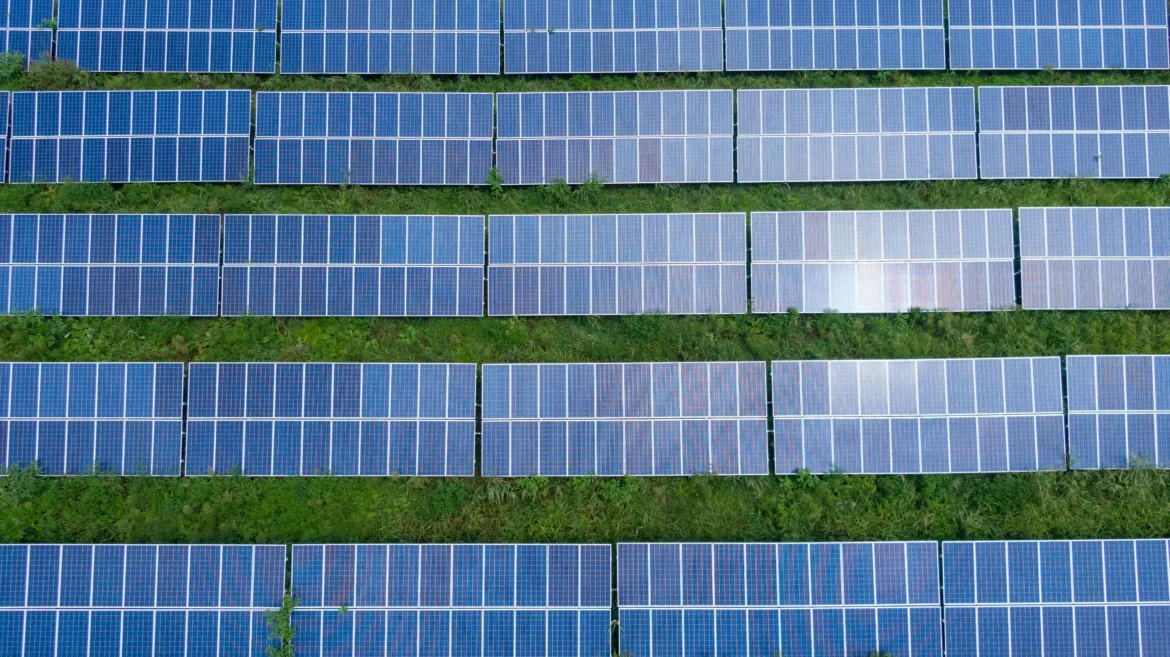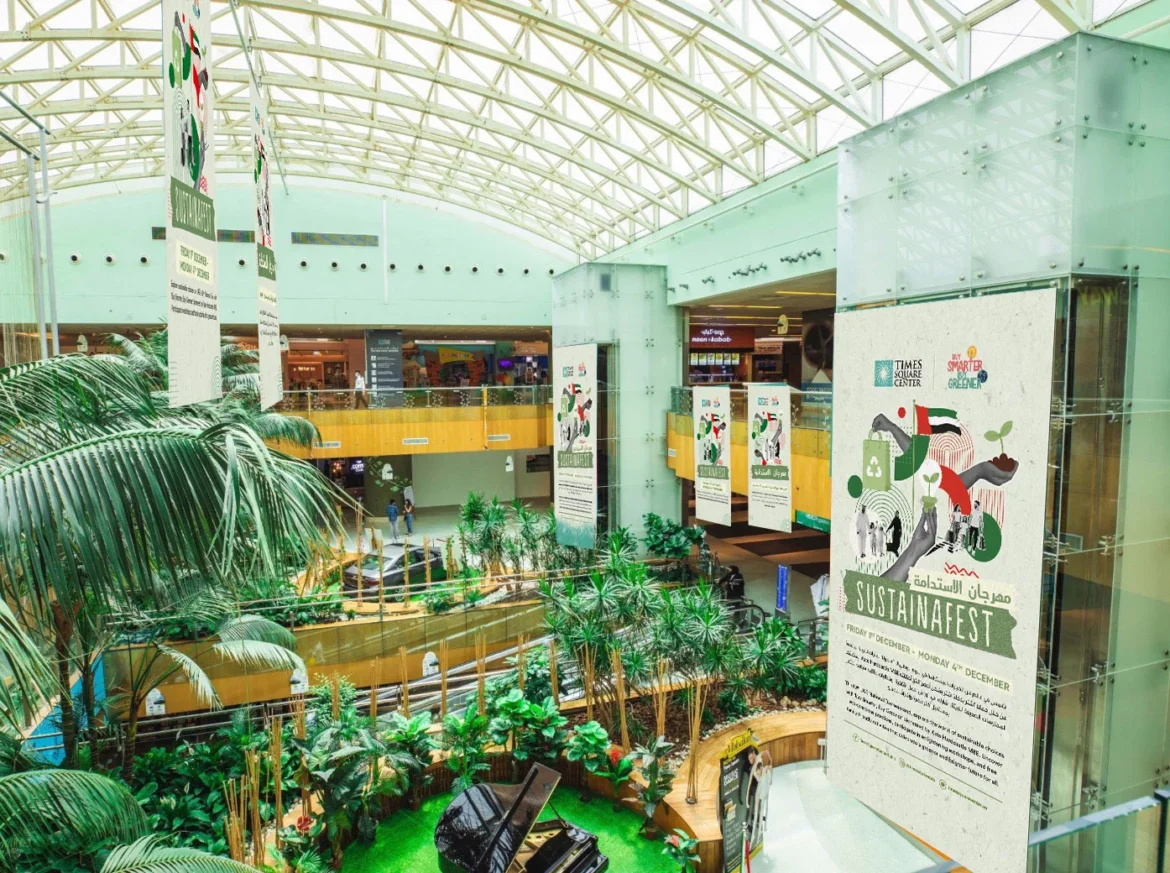Monthly Archives
November 2023
Generative AI: The Driving Force for Sustainability and Scalability in the Region
written by Madaline Dunn
In less than a year, we’ve gone from the “run your business and apply AI to help” paradigm to a reality where enterprises in every industry are navigating how to embed AI into the fabric of their strategies. Generative AI based on foundation models has brought us to this inflection point. Strategy& Middle East has predicted that the GCC region could attain around $10 of economic growth for every $1 invested in Generative AI.
Today, Generative AI can be applied to an array of use cases, such as sorting and classifying written input, transforming domain-specific text into personalized summaries, identifying, and extracting essential information from unstructured data, and generating code, marketing content and more.
There are a few key areas that are relevant to most enterprises and are ripe for quick gains in productivity and time to value:
· Talent: HR departments are embracing Generative AI to manage their workloads more efficiently. By training their models with company-specific HR data, HR professionals can use AI to help with tasks like creating job postings, summarizing groups of incoming resumes and helping professionals better understand new policy documents.
· Customer care: Organizations can combine customer data and Generative AI to create personalized experiences at scale through chatbots and digital assistants. AI has been successful in handling call center calls, to improve service and enable human agents to focus on more complex tasks.
· Application modernization: Engineers can use AI to generate and build upon starter code and playbooks. In fact, in the realm of application modernization and enterprise IT operations, this can be linked to an increase in productivity.
Navigating Sustainability Goals through Generative AI
Another key area where Generative AI is especially critical is scaling sustainability fast. Modernizing IT environments with AI implementation, green IT solutions, and advanced analytics platforms becomes pivotal in achieving sustainability goals.
The Middle East’s commitment to sustainability objectives has come into the limelight as the UAE hosts the 2023 United Nations Climate Change Conference (COP28) later this month. With the UAE declaring 2023 as the Year of Sustainability and pledging Net Zero by 2050, CEOs recognize sustainability as a top challenge. Forward-thinking organizations see sustainability not as a hindrance but as an opportunity to drive business and establish transparency.
The potential of Generative AI lies in its ability to process vast volumes of data, extract context from the data, and allow stakeholders to query and interact with it using natural language. We are starting to see the adoption of Generative AI applications by companies aiming to address new sustainability challenges. Some enterprises have already initiated efforts in this direction.
· The first among these is processing information already compiled in environmental, social, and corporate governance (ESG) reports. A company could combine purchase order information with a supplier’s ESG report. For example, if you know you’re responsible for half of a supplier’s turnover you can use their ESG reports to estimate your responsibility for scope 3 emissions.
· For investors interested in green finance, AI could process ESG reports in bulk to create a recommended shortlist of companies with a stronger environmental posture. In an advanced use case, generative AI models fine-tuned with a company’s sustainability policies could power an advisor application for activities such as supplier selection.
AI Governance embedded at every step
As companies adopt Generative AI in these new use cases, they also need to pay attention to a new set of risks that are emerging, ranging from potential privacy concerns to a lack of factuality. A Responsible AI approach and an AI Governance framework are both needed to ensure guardrails are in place for the responsible use of both classic and generative AI. At IBM, we recently announced the availability of watsonx.governance in December – a “nutrition label” for AI that will help AI to meet upcoming safety and transparency regulations and policies worldwide while managing, monitoring and governing AI models from IBM, open source communities, and other model providers.
Today, Generative AI stands at the forefront of innovation, offering businesses a transformative tool to navigate sustainability goals and scale operations responsibly. By automating critical processes, extracting meaningful insights from data, and empowering decision-making, generative AI paves the way for a more sustainable future.
By Saad Toma, General Manager, IBM Middle East and Africa.
IBM has announced its latest investments to advance environmental sustainability through its social impact programs.
This new set of environmental initiatives, including a partnership with the University of Sharjah, are pioneering water solutions that will be scaled through the IBM Sustainability Accelerator to benefit local communities across the United Arab Emirates.
It is also launching a first-of-its-kind roadmap of sustainability skills courses, available for free through IBM SkillsBuild.
The University of Sharjah will build a model and application to monitor and forecast water access conditions in the Middle East and North Africa, to help support communities in arid and semi-arid regions with limited renewable internal freshwater resources, it shared.
“Our commitment to climate action is unwavering, and through our partnership with the University of Sharjah, we are empowering communities, fostering innovation, and addressing the urgent need for green and technology skills. Together, we are not just adapting to climate change; we are shaping a resilient and sustainable tomorrow,” said Shukri Eid, General Manager, IBM Gulf, Levant and Pakistan.
“The University of Sharjah is proud to partner with IBM in developing solutions for the pressing environmental challenges faced by communities in arid regions” said Dr. Adewale Giwa, Assistant Professor of Chemical and Water Desalination Engineering at the University of Sharjah.
“Through the IBM Sustainability Accelerator, we aim to monitor and forecast water access conditions in the region, offering vital support to communities with limited freshwater resources. This collaboration reflects our commitment to leveraging technology for the betterment of society and creating a lasting impact in the face of climate change.”
IBM said that it is furthering its commitment to sustainable innovation with projects focused on water management solutions as part of its global social impact program, the IBM Sustainability Accelerator.
The 2023 IPCC AR6 Synthesis Report identified that 3.3 billion people live in areas vulnerable to significant impacts from climate change. With a commitment of $30 million worth of technology and services by IBM through the end of 2025, the program is adding five new projects focused on water management, offering IBM technologies, such as watsonx, and an ecosystem of experts.
Further, new research from IBM and Morning Consult confirms a growing skills gap in sustainability that threatens the workforce across industries.
Sixty-four per cent of business leaders surveyed in the UAE anticipate their business will emphasise sustainability skills criteria in their hiring in the next two years, with 79% expecting to invest in sustainability training in the next year.
To help build this pipeline of sustainability talent, IBM SkillsBuild shared that it is providing free training that “connects cutting-edge technologies to ecology and climate change.”
With AI-powered recommendations available for each learner, interdisciplinary coursework connects topics such as ecology and biodiversity, with technology training in AI and data
analytics. The curriculum aims to help equip the next generation of leaders with skills for the green economy.
IBM shared that it provides a holistic environmental tech training journey via IBM SkillsBuild, with digital credentials available at each step.
It includes:
· Introductory courses to help establish a foundation with historical insights and fundamentals to connect sustainability and technology.
· Mid-level offerings in design thinking and green entrepreneurship to encourage learners to grow their skills.
· Advanced coursework that will ask learners to apply their skills to sustainability topics across AI, cybersecurity, and ESG reporting.
Abu Dhabi Airports and Emirates Foundation have signed an MoU to help foster youth empowerment and social welfare across the UAE, it has been announced.
This new partnership aims to create “valuable volunteering and community service opportunities” for Emirati youth and expats.
Emirates Foundation shared that through strategic partnerships and programmes, it provides individuals with opportunities to build awareness and equip them with life skills to “overcome adversity and help create a better future.”
The ‘Takatof’ programme, it said, is one of the most important initiatives and is aimed at raising public awareness of social needs and promoting the culture of volunteering as a way of life among the various groups of the community.
Takatof supported the familiarisation trials at the new terminal at Abu Dhabi International Airports, providing more than 5,000 volunteers who stress-tested the new building in readiness for opening.
Commenting on the partnership, Elena Sorlini, Managing Director and Interim Chief Executive Officer, said: “Abu Dhabi Airports is proud to partner with Emirates Foundation to offer this opportunity to young Emiratis as part of our ongoing commitment to promoting positive change towards sustainable community development. Volunteering is a great way to learn more about a particular industry and explore it as a potential future occupation and we encourage all youth to consider aviation as a future career.”
H.E. Ahmed Taleb Al Shamsi, CEO of Emirates Foundation, added: “We are delighted to sign this agreement and look forward to collaborating with our esteemed partners at Abu Dhabi Airports as we embark on a shared mission to uplift Emirati youth and expats through meaningful community engagement. This MoU not only strengthens our commitment to the nation, but also creates invaluable volunteering opportunities in a vital industry. Together, we aim to cultivate a culture of service, unity, and empowerment, ensuring that progress extends to every corner of our diverse community. This partnership is a testament to our collective dedication to a brighter, more inclusive future.”
ICAO members adopt Dubai Framework for cleaner aviation fuel ahead of COP28
written by Madaline Dunn
On Friday, the International Civil Aviation Organisation (ICAO) announced the adoption of the Dubai Framework, a new ICAO Global Framework for Sustainable Aviation Fuels (SAF), Lower Carbon Aviation Fuels (LCAF) and other Aviation Cleaner Energies.
This took place during the last day of the Third ICAO Conference on Aviation and Alternative Fuels (CAAF/3), held in Dubai and comes a few days ahead of the UN Climate Change Conference (COP28).
In line with the Framework, the ICAO and its member states have agreed to strive to achieve a “collective global aspirational vision” to reduce CO2 emissions in international aviation by 5 per cent by 2030, compared to zero cleaner energy use, by expanding the production of SAF, LCAF and other cleaner aviation energy sources, supported by lowering production costs and providing financing and technology.
ICAO members also agreed to review these goals by 2028 by studying and evaluating global sustainable energy market developments.
The Global Framework was adopted following consultations made across five days, with inputs from over one thousand officials, investors and experts from 100 countries and 30 international organisations.
Key elements of the Framework include:
- A collective vision for the clean energy transition,
- Harmonised regulatory foundations,
- Supporting implementation initiatives, and
- Improved access to financing for related initiatives so that “No Country is Left Behind.”
It will see ICAO and its member states work towards the decentralisation of the production of SAF, LCAF and other aviation cleaner energies across all countries and regions, with the aim of providing a “fair and equal opportunity” to participate across the value chain, from feedstock to fuel production and use.
The Framework states that “no single fuel source will be produced at a level necessary to achieve the long-term global aspirational goal (LTAG)” and that, accordingly, the Framework needs to be “flexible and not exclude any particular fuel source, pathway, feedstock or technology that meets the CORSIA agreed criteria.”
SAFs, LCAFs and other aviation cleaner energies are expected to have the largest contribution to aviation CO2 emissions reduction by 2050, the Framework asserts, which will be supported through a comprehensive approach to be developed by the ICAO and its members, consisting of a basket of measures, including technology, sustainable fuels, operational improvements, and market-based measures.
H.E. Abdullah bin Touq Al Marri, Minister of Economy, said that the Dubai Framework is a “major turning point” in aviation and sustainable and clean fuel production, “ushering in a more sustainable future.”
H.E. added that it would also encourage investments in clean aviation energy, generating fresh investment and economic opportunities, noting that adopting the new Framework provides impetus to global climate action efforts, especially with COP28 a few days away.
Juan Carlos Salazar, ICAO Secretary-General, commented: “We are proud to be a part of this landmark agreement, which acts as a testament to the commitment of the global aviation sector to making a transitional shift and future-proofing our industry, while also boosting the sector’s contributions to Global Development Goals in terms of achieving carbon neutrality and driving sustainable growth model. The Global Framework for SAF, LCAF and other Aviation Cleaner Energies provides a clear roadmap to achieve these goals.”
Institution of Engineering and Technology (IET) to launch international Green Skills Survey
written by Madaline Dunn
The Institution of Engineering and Technology (IET) is to launch its Green Skills Survey globally on Friday, 8th December, to coincide with the COP28 Youth, Education and Skills thematic day and an official side event within the blue zone, co-hosted by the IET, IEEE, UNSDSN and Student Energy organisations.
The survey has respondents from across ten countries, highlighting the most vital skills engineers need in the fight against climate change, as well as how engineering employers think they are currently performing in areas such as agility and resilience.
The survey also examines the pipeline of skills coming through new entrants to industry and the areas of technology considered most important to meet net zero targets in each country.
The IET said that this builds on the work it has done in the UAE and Oman, with previous regional skills surveys looking at the state of engineering skills in the region.
Similar findings show that leadership and problem-solving are skills that many engineering employers value, but that can be missing in key areas of the business.
The survey is broken down into the regions of Europe, MENA, APAC, and the Americas to provide insights into specific regions as well as demonstrate global parallels where skill gaps are felt most keenly across the world.
The IET said that to ensure the launch is fully accessible to industry, academia, and governments, it will take place outside the blue zone in Dubai.
The event, it shared, is designed to encourage discourse on the findings within local industry and pave the way for greater discussions, both in the UAE and wider arena, to help find ways to close skills gaps and ease the path to net zero for engineering organisations.
Hosted by Dr Gopichand Katragadda, IET President, the event will take the form of a panel discussion, with representatives from key industry organisations and academia.
There will also be a Q&A from the audience and media representatives and Dr Katragadda will be available for interview.
EEG: 23rd Cycle of the Inter-College Environmental Public Speaking Competition concludes
written by Madaline Dunn
Emirates Environmental Group (EEG) recently conducted the 23rd edition of the annual Inter-College Environmental Public Speaking Competition from November 20th to 23rd, 2023, located at Higher Colleges of Technology in Dubai.
The event brought together over 450 students for a bilingual (Arabic/English) competition, fostering a forum for the region’s undergraduate youth to articulate their environmental concerns and propose viable solutions.
The program was designed in a hybrid format, and offered teams the flexibility to engage virtually or in-person, enabling the participation of 89 teams from 24 countries representing different regions.
The four-day event aimed to facilitate broader participation across multi-faceted environmental challenges, and provide an “exceptional educational platform” for a wider array of institutions. In this cycle, the participating teams vied for the prestigious rolling trophy across diverse subject matters, including:
1. Environmental Policies and Regulations: Are they Enough?
2. Rising Energy Demands: Satiable with Renewable Energy or Oil Indispensable?
3. Multinational Corporations: Compelling Economic Growth or Environmental Degradation?
4. The Omnipresent Microplastics: The Unseen Pandemic
EEG Co-Founder and Chairperson, Ms. Habiba Al Mar’ashi, launched the 23rd cycle and said: “The Inter-College Environmental Public Speaking Competition was established in the UAE in 2001. Our aim with this programme is to empower the youth in the Arab World to comprehend the pressing environmental challenges and contribute to finding innovative solutions. Over the years, EEG has been nurturing the skills of our young leaders, who possess both technological prowess and boundless energy.”
Expanding on this, Al Mar’ashi added: “Our primary objective is to provide a platform for these young people, who are directly influenced by the environmental shifts. It is our responsibility to listen to them, underscoring the vital role of youth in addressing climate change’s impacts. The youth are technologically adept, intelligent, and dynamic, equipped with fresh and innovative solutions. Therefore, it is our obligation to provide them with a platform to articulate their ideas, acknowledging their pivotal role in building a sustainable future.”
Eight bilingual sustainability experts came on board to adjudicate this edition of the competition, including:
· Eng. Redha H. Salman, Expert, Environment Health & Safety – Dubai Municipality
· Dr. Sabih G. Khisaf, Infrastructure Lead Engineer, MENA, Hyperloop TT
· Ms. Reem Khallaf, Sustainability Analyst, Accenture
· Dr. Bayan K. S. AbuShaban, Senior Specialist, Environmental Sustainability
· Engr. Yousef Mohamed AlMarzooqi, Director of Standards, Ministry of Industry and Advanced Technology
· Mr. Imad Eddine Oubiri, Sr. Business Advisor, UAE
· Mr. Mario Saab, Head of Sustainability MENA – Cundall
· Mr. Ashraf Kraidy, Founder & Director General, AKST Consulting
The winners of the 23rd cycle of Inter College Environmental Public Speaking Competition were:
- Topic 1: Environmental Policies and Regulations: Are they Enough? University of Bolton RAK, Civil engineering, UAE
- Topic 2: Rising Energy Demands: Satiable with Renewable Energy or Oil Indispensable King Abdulaziz University, Jeddah, Faculty Of Architecture And Planning, KSA
- Topic 3: Multinational Corporations: Compelling Economic Growth or Environmental Degradation? Prince Sultan University, College of Humanities with the PSU Debate Club, KSA
- Topic 4: The Omnipresent Microplastics: The Unseen Pandemic King Abdulaziz University, Jeddah, Faculty of Medicine, KSA
The overall rolling trophy was won by Prince Sultan University, College of Humanities, with the PSU Debate Club, KSA, who cumulatively achieved the highest score across the four-day competition.
The competition received support from organisations, including UPS and Accenture. Abela & Co was the caterer for the event, and Higher College of Technology (Dubai Women’s College) was the venue host.
In the last edition of the Inter College event, EEG’s chairperson announced that the competition will be open to universities beyond the Arab region for the first time to commemorate the efforts of the UAE to achieve the Sustainable Development Goals and the momentous occasion of hosting COP 28.
The 23rd cycle of the competition also grew this year and witnessed participation from several countries outside the MENA region.
Having accreditations from the United Nations Environment Programme and the United Nations Convention to Combat Desertification, and building on the work of EEG to deliver on the relevant UNSDGs, it shared that it conducted the event to directly address and work on the deliverables of UN SDG Goal #2: Zero Hunger, #3: Good Health and Well-Being, #6: Clean Water and Sanitation, #7: Affordable and Clean Energy, #9: Industry, Innovation, and Infrastructure, #11: Sustainable Cities and Communities, #12: Responsible Consumption and Production, #13: Climate Action, #14: Life Below Water, #15: Life on Land, and #17: Partnership for the Goals.
From the European Union’s Green Deal Industrial Plan and the United States’ Inflation Reduction Act (IRA) to Japan’s Green Growth Strategy and the Korean New Deal, industrial policies aimed at accelerating the energy transition are proliferating in wealthy, technologically advanced economies. Many developing economies are also designing and deploying state-led projects to foster green industrialization, as competition intensifies for electric vehicles (EVs), so-called transition minerals, and clean energy.
For example, several African countries, including South Africa, Kenya, Mauritania, Egypt, Djibouti, Tunisia, Morocco, and Namibia, have enacted state-led initiatives to support the development of green hydrogen. Others, including Indonesia, Bolivia, and Chile, are implementing national strategies to stimulate industrialization based on the extraction and processing of nickel, cobalt, copper, lithium, and other transition minerals and metals.
These policies use a broad range of instruments – including subsidies, regulations, incentives, and diverse state-business arrangements – and differ widely in terms of the public and private resources at their disposal. But they all seek to tackle three crises simultaneously: economic stagnation, polarized and precarious employment, and intensifying climate change.
The revival of industrial policy is based on the logic that addressing all three crises will create a virtuous cycle: targeted investment in green manufacturing and energy will boost economic activity, create well-paying jobs, and usher in a low-carbon economy. The Biden administration’s “modern American industrial strategy,” comprising the Bipartisan Infrastructure Law, the CHIPS and Science Act, and the IRA, exemplifies this approach. What has been called the “Biden three-fer” is designed to boost US competitiveness in key industries vis-à-vis China, provide better economic opportunities for American workers, and accelerate decarbonization.
But the win-win narrative undergirding these new industrial strategies tends to obfuscate the risk that solving one problem may exacerbate another. In fact, the tensions between these policy objectives are already visible. For example, the decarbonization of the economy may not create as many decent jobs as initially expected. In the US, both car companies and the United Auto Workers union have warned that the shift to manufacturing EVs, which require fewer parts, could lead to job losses.
Some of these jobs will be redistributed to battery production, but this may be cold comfort for American and European auto workers, given China’s dominance over the global battery supply chain.
At the same time, the growth of green industries can result in other environmental harms. Despite aiming to generate employment and value through the production of transition minerals, the industrialization strategies of several Global South countries tend to entrench extractive practices. For example, Argentina, Bolivia, and Chile – South America’s “lithium triangle” – are seeking to capture various stages of the lithium supply chain, from mineral extraction to processing to battery assembly.
But the growth of this industry threatens to deplete water supplies, degrade soil, and disrupt habitats, often in zones inhabited by indigenous Andean peoples. Similarly, the production of semiconductors, which are at the heart of clean tech, is energy-, water-, and land-intensive and releases perfluorocarbons and other potent greenhouse gases into the atmosphere.
Finally, economic stagnation can have a destabilizing impact on domestic politics, impelling governments to aim for a higher growth rate regardless of the environmental costs. For example, British Prime Minister Rishi Sunak recently announced a series of U-turns on the government’s net-zero pledges. Shedding burdensome climate commitments may seem like a politically attractive strategy to boost immediate growth prospects. But – and herein lies the contradiction – longer-term growth will at least partly depend on governments ensuring that their economies are competitive in the green industries of the future.
As these examples show, industrial policy is not a silver bullet for the intersecting crises of our times. The policy objectives of environmental sustainability, industrial dynamism, and full employment are difficult to reconcile and require hard political choices about resource allocation, strategic priorities, and, crucially, the distribution of economic and social costs. Moreover, the trade-offs will grow more complex and challenging as global warming worsens and growth continues to sputter. What we call the “wicked trinity” of contemporary governance – climate catastrophe, economic stagnation, and surplus humanity – will not go away anytime soon. In fact, it will likely shape the trajectories of public policymaking long into the future.
This is not to say that policymakers should give up on designing ambitious strategies to address these crises. On the contrary, swift and effective action is an absolute necessity. Yet packaging these plans in win-win narratives that paper over the difficult trade-offs they involve significantly raises the risk that governments will lose popular support. The complex and conflicting nature of these policy objectives means that even the best-designed strategies will fall short, at least in some respects. This is unavoidable and an important component of learning-by-doing.
To avoid being seen as breaking promises, policymakers must embrace, rather than dismiss, the tensions and trade-offs at the heart of green industrial policies and subject them to public deliberation. This is essential to securing broad support for state-led decarbonization projects. Such an approach would help build robust, transparent governance structures rooted in the principles of democratic deliberation and public oversight and control. As matters stand now, many industrial strategies are the product of top-down, technocratic policymaking processes, despite all the talk of “leaving no community behind” and a “just green transition.”
Subjecting the economy to democratic decision-making in this way would, admittedly, constitute a radical challenge to the current system of private ownership and market coordination. But it is essential to secure and maintain popular legitimacy for green industrial policies, as well as to facilitate collective and efficient decision-making and minimize mismanagement. Otherwise, we risk a public backlash that impedes the collective action needed to safeguard our future on this planet.
Ilias Alami, Assistant Professor in the Political Economy of Development at the University of Cambridge, is the author of Money Power and Financial Capital in Emerging Markets: Facing the Liquidity Tsunami (Routledge, 2019). Jack Copley, Assistant Professor in International Political Economy at Durham University, is the author of Governing Financialization: The Tangled Politics of Financial Liberalization in Britain (Oxford University Press, 2021). Alexis Moraitis is a lecturer in International Political Economy at Lancaster University.
© Project Syndicate 1995–2023
www.project-syndicate.org
Times Square Center is set to host a four-day, full mall takeover “Sustainafest” during COP28 with international broadcaster, retail and consumer expert, and founder of “Buy Smarter, Buy Greener” Kate Hardcastle MBE.
Kicking off on Friday, 1st December and running until Monday, 4th December, Times Square Center will host educational and interactive talks and panels on the main stage, plus workshops and fun activities on upcycling, growing herbs, homemade beauty products, as well as music, dance and more.
It shared that the event aims to teach visitors how to make greener buying decisions as well as how to do so in a fun and accessible way, whilst “celebrating all the great strides UAE businesses are making.”
“The long holiday weekend will see the whole Dubai community invited to a UAE National Day celebration like no other, where consumers are encouraged to ‘Buy Smarter, Buy Greener’ and celebrate all the great strides our home-grown businesses and brands are making in the bid to reduce the impact on the planet,” it said.
Speaking about partnering with Times Square Center to host the initiative, Kate Hardcastle MBE said: “It’s with excitement and a deep sense of purpose that I bring the ‘Buy Smarter, Buy Greener’ mission to Dubai as we set the stage for COP28. This initiative is more than just a campaign; it’s a call for consumers and brands alike to embark on a journey towards a more sustainable future.”
Hardcastle continued: “As consumers, our purchasing power is a tool for change. Every dirham spent is a vote for the kind of world we want to live in. At ‘Buy Smarter Buy Greener,’ we’re not just talking about making eco-friendly choices; we’re providing actionable, supportive, and authentic advice to make those choices a seamless part of everyday life. We’re offering clear, straightforward pathways to greener living.”
Nancy Ozbek, General Manager at Times Square Center, commented: “We are proud to be making a difference this upcoming National Day weekend, whilst also in alignment with COP28. By showcasing the pioneering UAE brands that are leading the charge in sustainability, visitors to Time Square will witness the commitment from local brands and mall tenants who are embedding eco-conscious practices into their DNA. Our community understands that sustainability isn’t just a buzzword – it’s the essence of forward-thinking business.”
‘Sustainafest: Buy Smarter, Buy Greener’ is free to attend, and a full schedule for the four-day activation will be available in due course.




